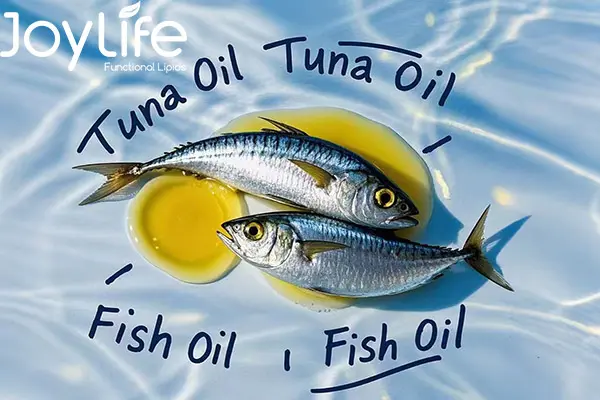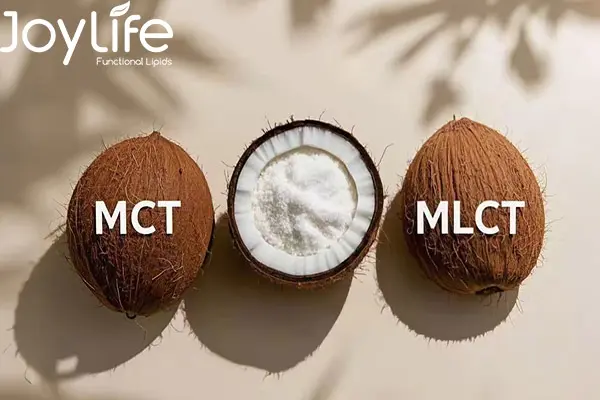



What is medium-chain triglyceride (MCT)?
1.Medium-Chain Triglycerides (MCTs) are a type of fat that consists of medium-length chains of fatty acids, typically containing 6 to 12 carbon atoms. They are naturally found in certain foods like coconut oil, palm kernel oil, and dairy products, and are known for their unique metabolic properties. Unlike long-chain triglycerides (LCTs), which are found in most other fats, MCTs are digested and absorbed more quickly, providing a rapid source of energy.
MCTs are composed of three fatty acids attached to a glycerol backbone. The "medium-chain" refers to the length of the carbon chain in the fatty acids. The most common MCTs include:
Caproic acid (C6): 6 carbon atoms.
Caprylic acid (C8): 8 carbon atoms.
Capric acid (C10): 10 carbon atoms.
Lauric acid (C12): 12 carbon atoms (sometimes debated as an MCT due to its slightly longer chain).
C8 and C10 are considered the most effective MCTs for quick energy and ketone production.
2.Structure of MCTs:
3.1 Rapid Absorption: MCTs are quickly broken down in the digestive system and transported directly to the liver, where they are rapidly converted into energy or ketones.
3.2 Ketone Production: MCTs are a popular choice for ketogenic diets because they can be easily converted into ketones, which serve as an alternative energy source for the brain and body when carbohydrate intake is low.
3.3 Efficient Energy Source: Unlike long-chain fats, MCTs do not require bile salts for digestion and are absorbed directly into the bloodstream, providing a quick and efficient energy boost.
Quick Energy: MCTs are rapidly metabolized, making them an excellent source of immediate energy for both physical and mental performance.
Supports Ketosis: MCTs help promote ketone production, making them ideal for ketogenic diets and low-carb lifestyles.
Weight Management: MCTs may increase feelings of fullness and boost metabolism, aiding in weight loss or maintenance.
Improved Cognitive Function: Ketones produced from MCTs can cross the blood-brain barrier, providing an alternative energy source for the brain and potentially enhancing focus and mental clarity.
Digestive-Friendly: MCTs are easier to digest than long-chain fats, making them suitable for individuals with digestive issues or fat malabsorption.
Antimicrobial Properties: MCTs, particularly lauric acid (C12), have antimicrobial and antifungal properties that support gut health.
Natural Sources: Coconut oil, palm kernel oil, and dairy products like butter and milk.
Supplements: MCT oil, MCT oil powder, and capsules.
3.How MCTs Work:
4.Benefits of MCTs:
5.Sources of MCTs:
Added to coffee or tea (e.g., "bulletproof coffee").
Used in smoothies, shakes, or meal replacements.
Incorporated into cooking, baking, or salad dressings.
Taken as a dietary supplement for energy or ketone support.
In summary,MCTs are a unique type of fat that provides quick energy, supports ketosis, and offers numerous health benefits. They are widely used in ketogenic diets, athletic performance, and general wellness.
6.Uses of MCTs:
If you need any MCT oil, or MCT oil powder, pls kindly choose from
Structural Lipid supplier, ARA,CLA,MCT,MLCT,OPO,Infant grade, food grade, Joylife Nutripharma Inc
https://www.joylifenutripharma.com/product/product-categories/ara,cla,mct,mlct.html
Thanks for your reading!